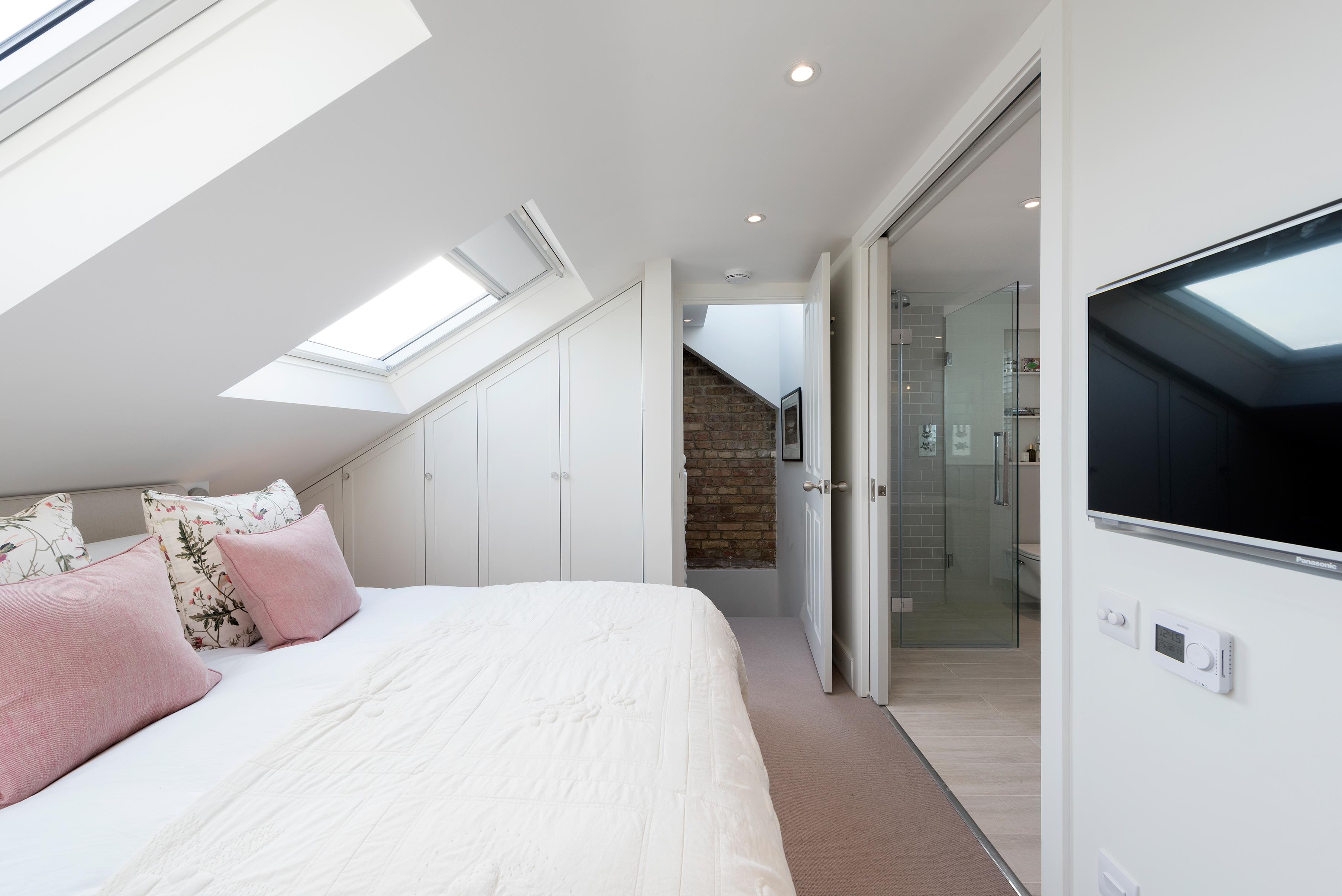

Sarah Warwick
Loft conversion costs could make staying put and creating more space in your existing home a sensible option compared to the bill – and disruption – that comes with moving to a larger home.
A simple loft conversion could start from as little as £20,000 and is a tempting house improvement project, allowing you to create an extra bedroom, additional living space or a home office, among other options.
But, of course, loft conversion costs will depend on your loft conversion plans, the type of design you opt for, which rooms you create on this floor of your home, and whether you can make use of your permitted development rights or need to apply for planning permission.
Our guide has everything you need to add up the costs of this type of house renovation.
How much will a loft conversion cost in 2022?
Loft conversion costs will vary depending on size, whether you'll need to alter its structure for staircase access, the type of conversion you're going for and where you live in the country. But, on average, loft conversions range anywhere between around £20,000 and £67,000, according to Andy Simms, construction consultant at MyBuilder.
To break loft conversion cost down further, identify the type you are going for. MyBuilder provides the following guidelines for the different types:
A basic, room in the roof conversion: for the simplest of loft conversions, usually involving floor reinforcement, skylight(s), insulation, a staircase, electrics, lighting and heating plus fire safety measures, loft conversion prices can start from around £17,250 to £23,000.
A dormer loft extension: including all the provisions above, plus a dormer window. Loft conversions with dormers might be your next best option if the basic rooflight conversion doesn't offer enough head height or floor space. Expect to pay from £36,000 to £67,000 with an average of around £52,000.
A mansard extension: expect to pay from £52,000 to £81,000 with an average of £67,000.
A hip-to-gable extension: expect to pay from around £48,000 to £75,000 with an average of £62,000.
Ready-made loft conversions, made off-site and craned into position are quick and will reduce labour costs, which can be beneficial if you live in an area where labour costs are higher. Expect to pay around £63,000.
A conversion that requires change of roof structure: this is obviously the most costly of options, since removing and rebuilding the roof will require an experienced designer and increase labour and material costs. This type of conversion is likely to cost upwards of £40,000.
Do loft conversions add value?
Loft conversions provide one of the best returns on investment you can get when it comes to extending, with experts suggesting they add up to 20% to your home (more on this below). To make it worth it, the loft conversion cost shouldn't be greater than the added value to your property, so do the maths and be sure to check out the ceiling price for properties in your area to avoid disappointment before you start.
Get an individual estimate for your loft conversion with the help of our extension cost calculator.
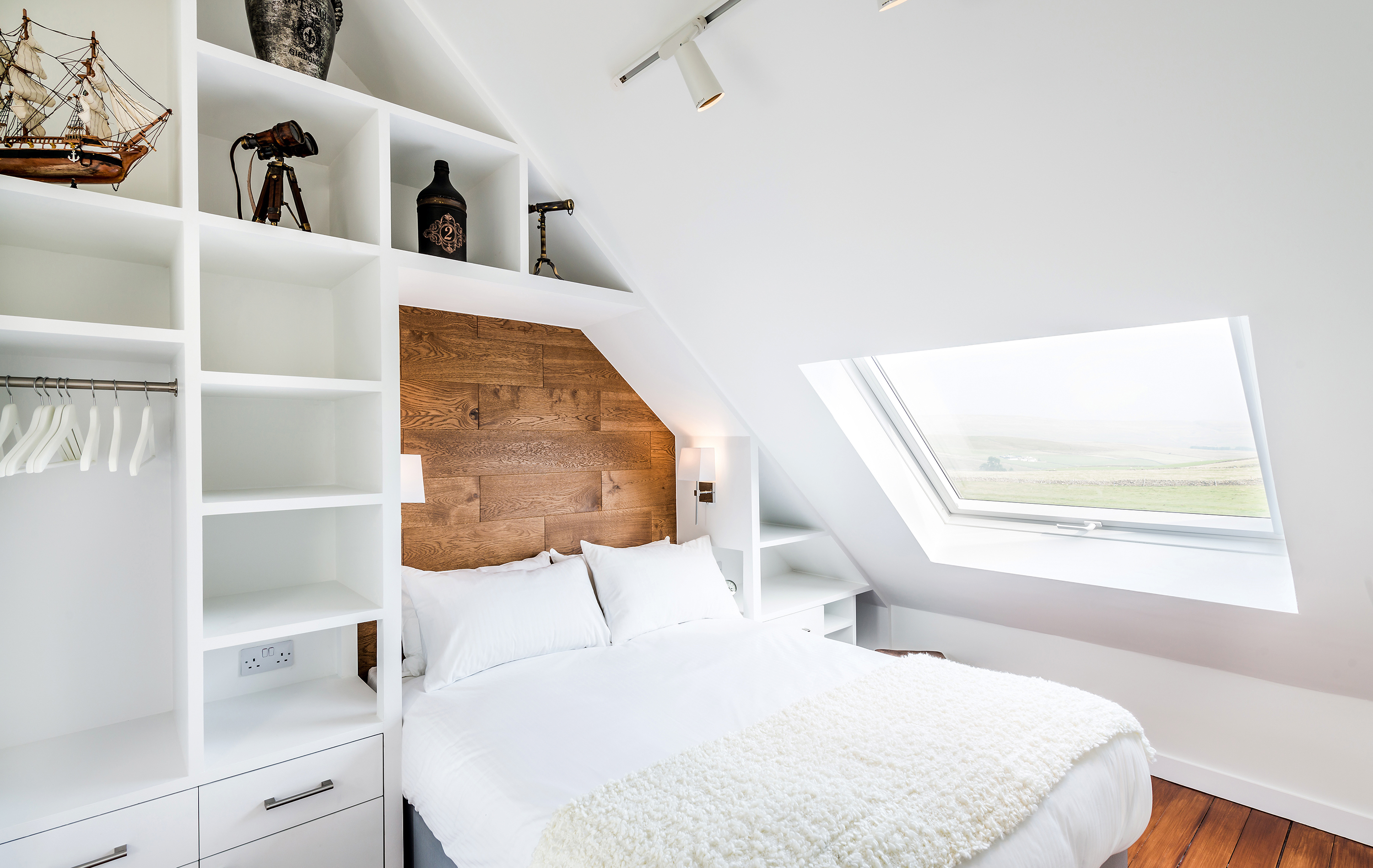
Additional loft conversion costs: planning and professional fees
Subscribe to Real Homes magazine

Love your daily dose of Real Homes? Then why not subscribe to our magazine? With our special deal you can subscribe to our annual print and digital bundle offer today and receive 12 issues for just £39.99 – a massive saving of 52%.
Loft extensions can usually be completed under permitted development rights, but it is worth obtaining a certificate of lawfulness (£103) from your local council for the work and checking whether you will need planning permission for a loft conversion.
Should planning be required, expect planning permission fees (£206); these may be included in your agreed contract with the loft company, but do check.
If you live in an attached house, you will need a party wall agreement with your neighbour(s). A typical average cost is around £1,000.
Building control fees (around £500, plus VAT) are also payable by the homeowner to the local authority or a government-approved, independent inspection company, to check that the work is as contracted and to issue building regulation certificates to prove that it has been carried out in accordance.
You’ll find small companies will usually charge 10 to 15 per cent less than large companies.
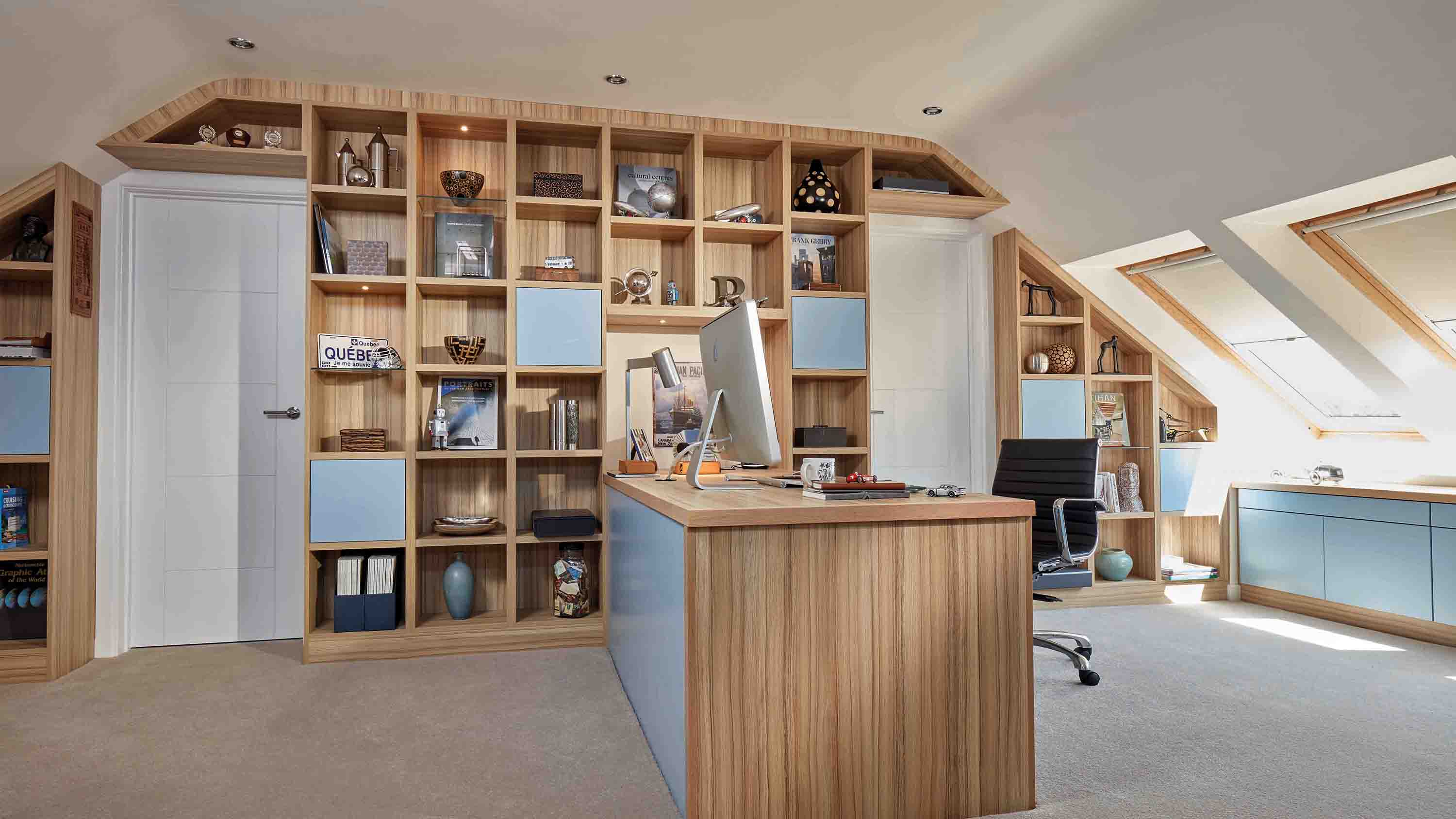
Additional loft conversion costs: design and other fees
It's likely that design fees are included within your loft company's quote, but you may wish to appoint an architect to design your loft conversion.
‘Architect fees are likely to start from £2,000 plus VAT for design and planning advice up to and including your application, and could easily be as high as £10,000 plus VAT or more for a full mansard,’ says Mark Morris, planning consultant and communications manager at Urbanist Architecture.
‘Architect fees for technical design and building regulations approval are likely to start from £5,000 plus VAT.’
If you need a structural engineer? ‘Initial advice: from £150; for technical design/building regulations approval, from £800,’ says Mark.
‘You could also need: a measured building survey (from £800); a daylight/sunlight survey (if you need to make sure your loft isn’t going to cut off light from your neighbours),’ he adds.
There could be other loft conversion costs to factor in. ‘If you live in a house built before 1914 or live next to woodland, there’s a good chance you’ll need a bat survey before any work can start,’ says Thomas Goodman, property and construction expert at MyJobQuote. ‘Plus, if your home hasn’t had any work carried out on it for some time, there may be general repairs needed such as retiling and repointing to make your loft space dry and warm.’
If you have asked your architect to put the contract out to tender, appoint the builder and administer the contract, budget for a further three to seven per cent of the build cost. Or, you can agree a day or hourly rate for ad hoc site attendance.
The interior fittings of your loft extension will usually include the basics: sanitaryware; electric points and basic light fittings; door and window furniture; skirting and woodwork; possibly flooring. The price may also include basic decoration – often an all-over spray paint with a white finish for walls and woodwork. For anything extra, you will need to ask for quotes on top of the original price.
The cost of loft conversion vs what you should spend
Given that loft extension cost is often upwards of £36,000 (but often much more, particularly in large cities and in larger properties), there is a limit to how much you should spend on your loft conversion.
As aforementioned, if you plan on eventually selling the house, you will need to consider the ceiling price of your street – an estate agent can advise on this. Essentially, you want the value of your house to increase by at least the cost of your entire loft conversion, but by spending too much, you may over-value your own house, making it difficult to sell for an appropriate profit.
Comparing the quoted cost of your loft conversion, plus the value of your home, with the cost of moving to a larger house in the same area is a worthwhile practice in assessing the benefits of converting the space.
For example:
Your house is valued at £270,000.
The loft conversion costs £50,000, making the projected cost of the home £320,000.
However, the ceiling price of your street is £300,000, making it impossible to recoup the £20,000 excess spent on a loft conversion.
If there is a house in your area with the space you require for less than £320,000, it is worth considering a move, rather than investing in the loft conversion.
Join our newsletter
Get small space home decor ideas, celeb inspiration, DIY tips and more, straight to your inbox!
Lucy is Global Editor-in-Chief of Homes & Gardens having worked on numerous interiors and property titles. She was founding Editor of Channel 4’s 4Homes magazine, was Associate Editor at Ideal Home, before becoming Editor-in-Chief of Realhomes.com in 2018 then moving to Homes & Gardens in 2021. She has also written for Huffington Post, AOL, UKTV, MSN, House Beautiful, Good Homes, and many women’s titles. Find her writing about everything from buying and selling property, self build, DIY, design and consumer issues to gardening.
- Sarah WarwickFreelance Editor
-
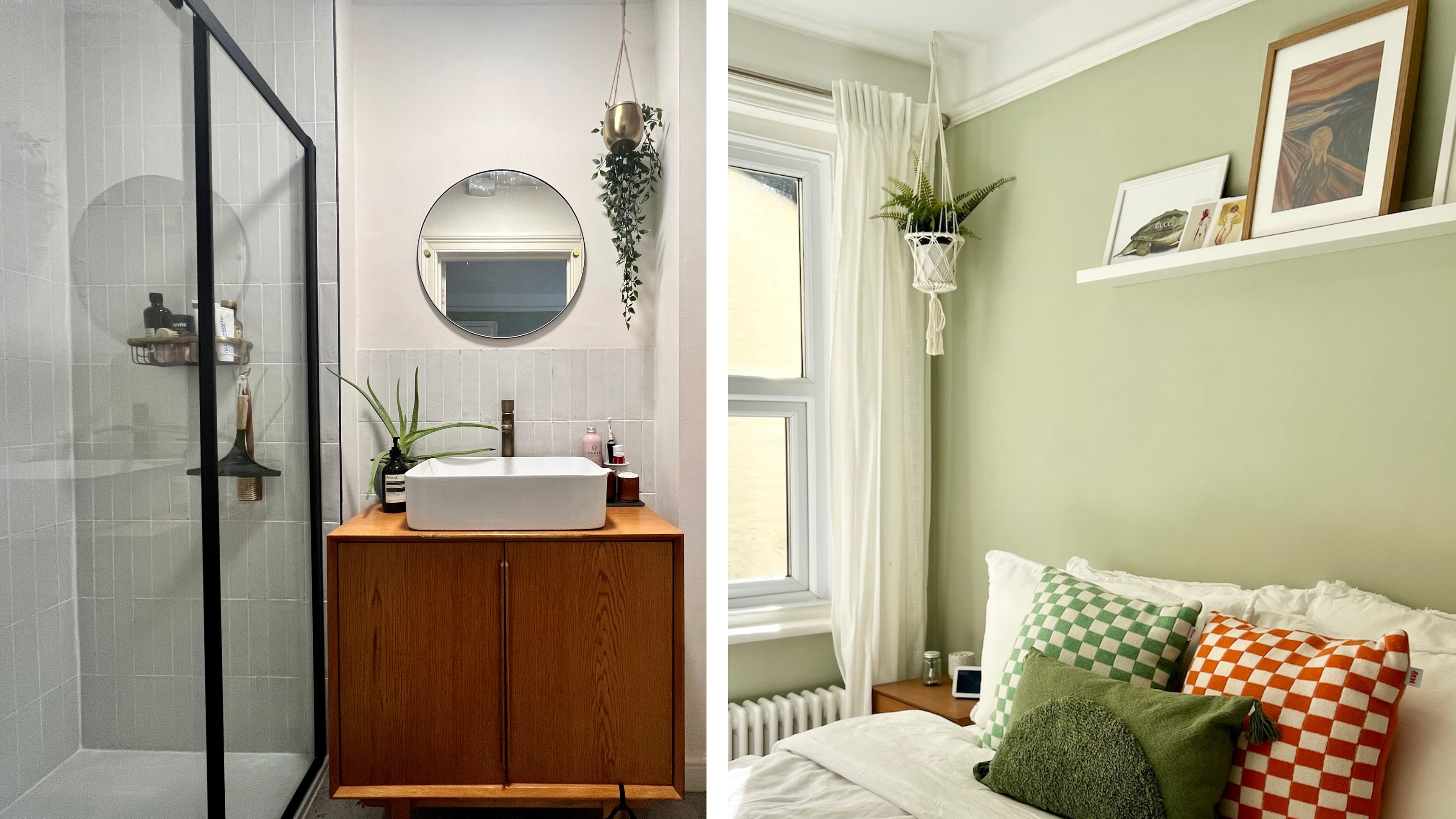 My first apartment makeover: 5 renovation mistakes I learned the hard way, and how you can avoid them
My first apartment makeover: 5 renovation mistakes I learned the hard way, and how you can avoid themThese are 5 things to avoid in your apartment makeover. Trust me, I learned these the hard way during my first renovation project
By Luisa Rossi Published
-
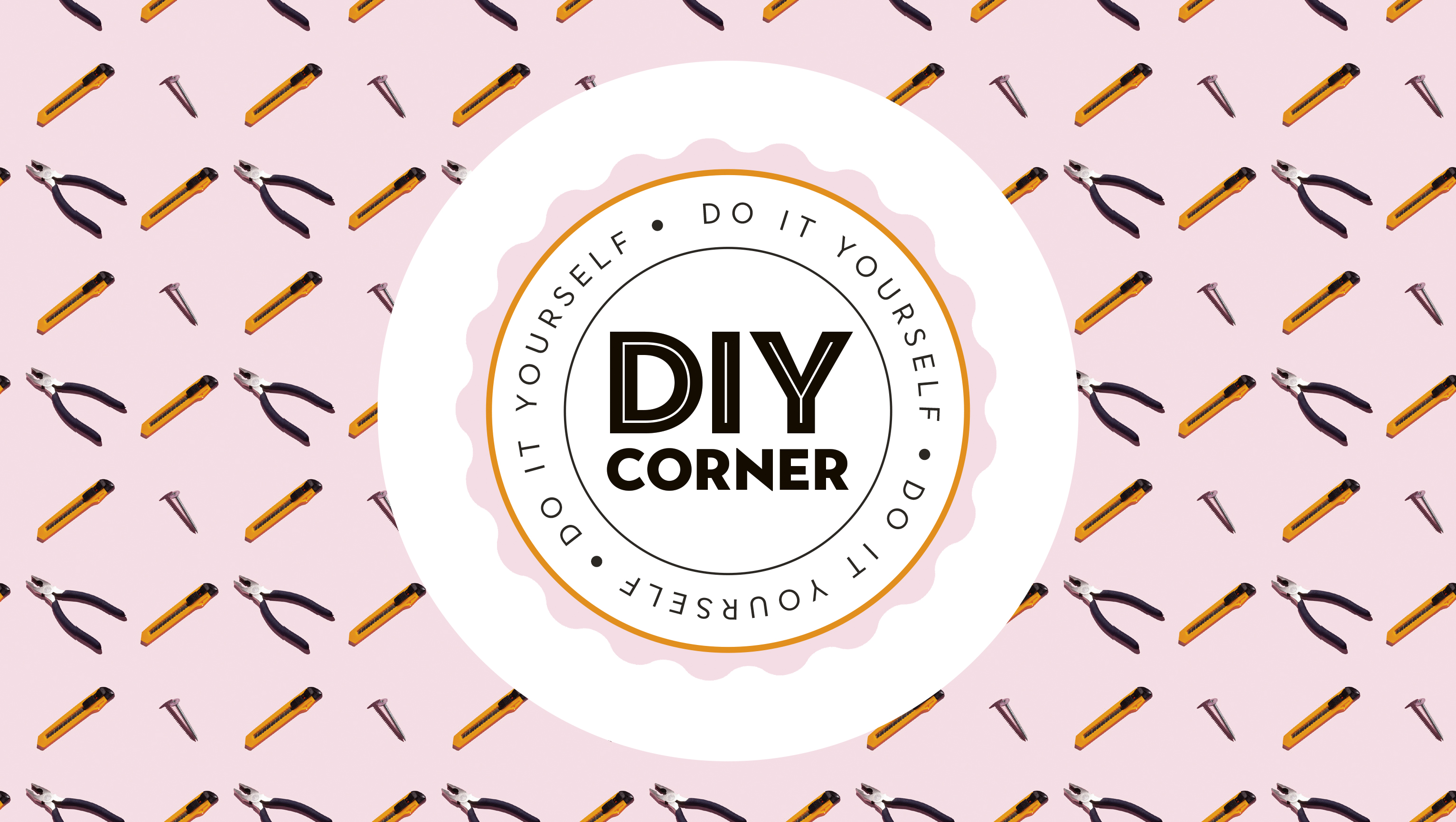 Share your small space glow up to win $150 in the Real Homes competition
Share your small space glow up to win $150 in the Real Homes competitionShow off your creativity and DIY skills to win $150 and for the chance to be featured exclusively in Real Homes magazine
By Camille Dubuis-Welch Last updated
-
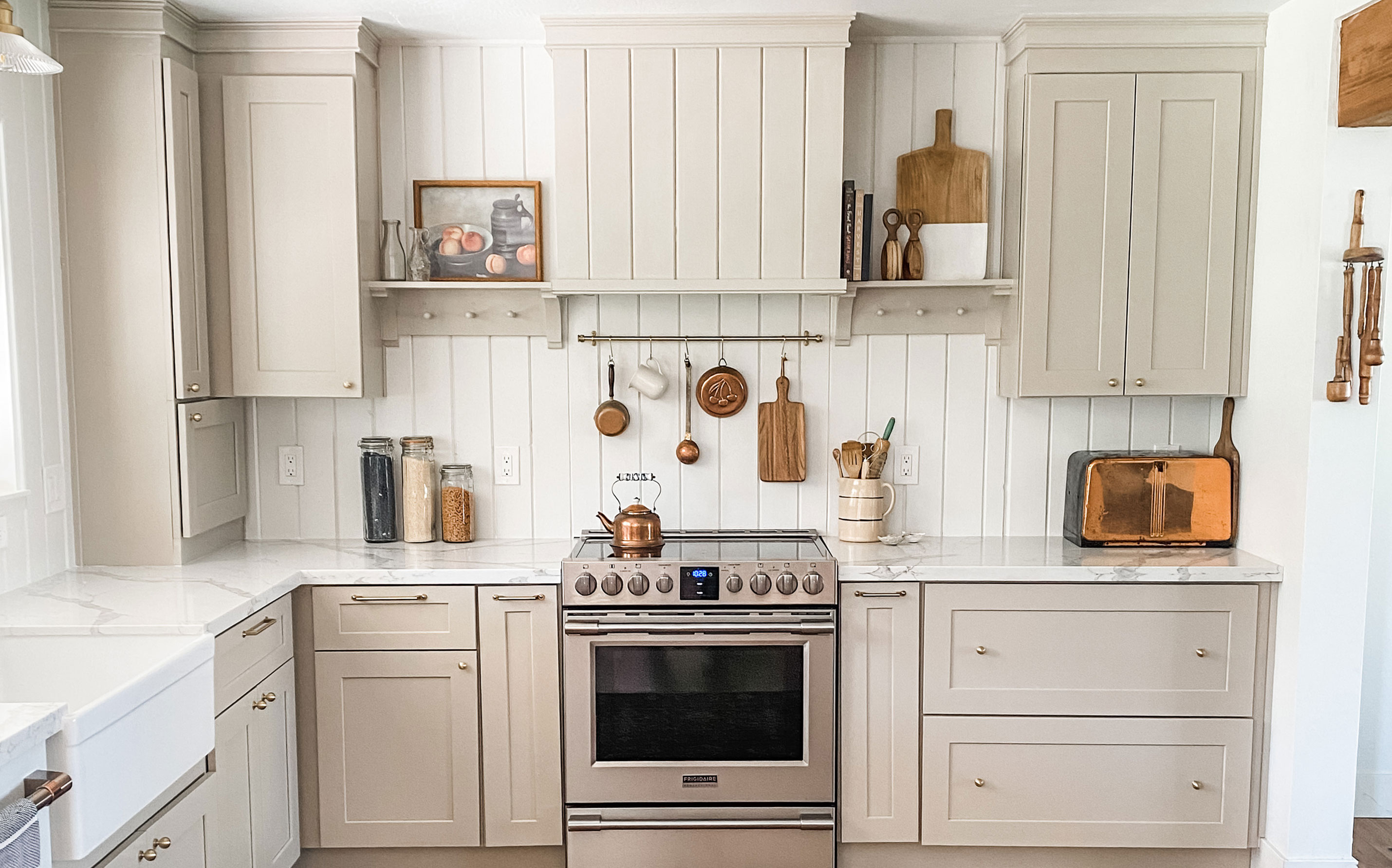 My DIY range hood and backsplash build gave my kitchen the perfect farmhouse finish
My DIY range hood and backsplash build gave my kitchen the perfect farmhouse finishI craved charm in my kitchen space and adding a custom range hood and shelving was the best move.
By Brooke Waite Published
-
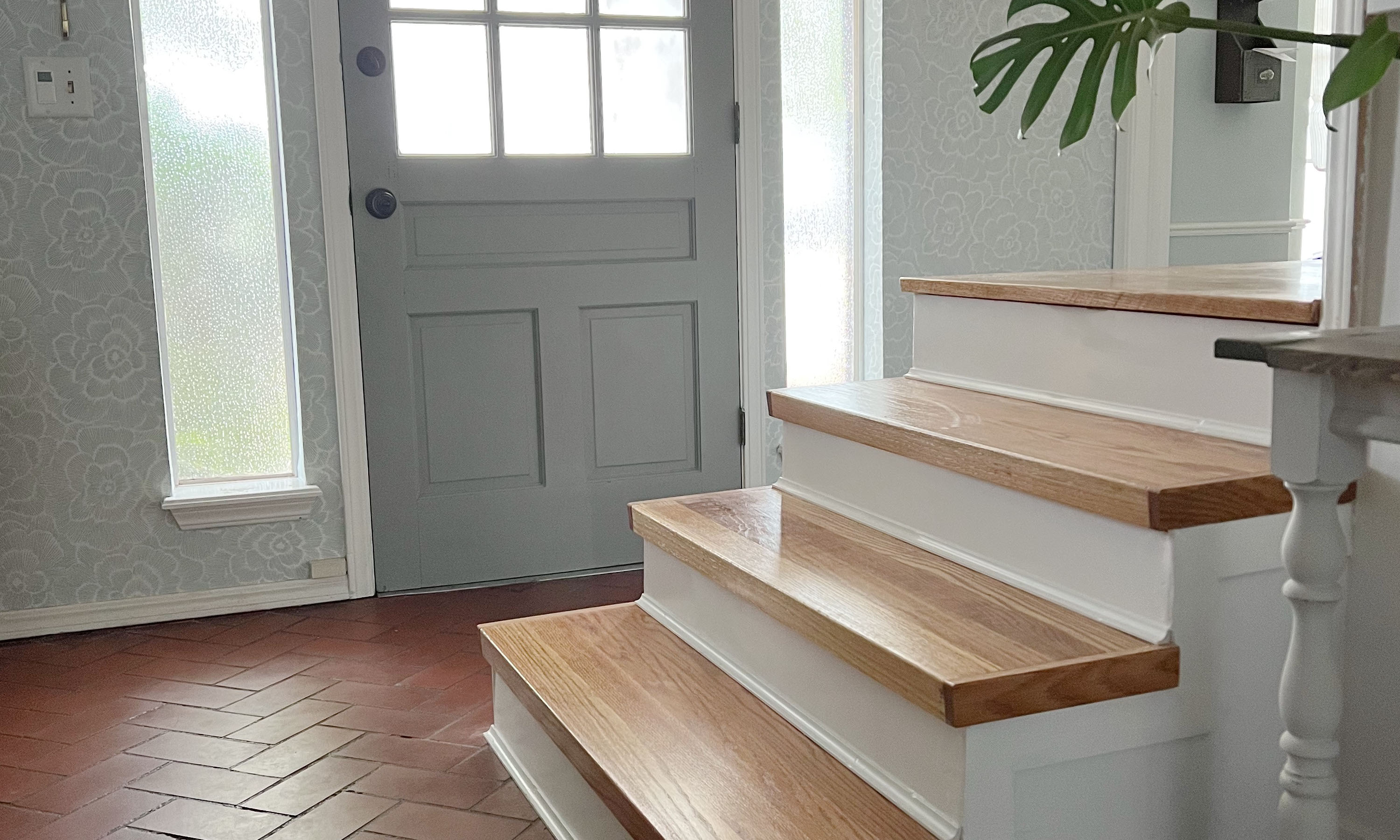 How to convert carpeted stairs to wood treads: a 5-step DIY
How to convert carpeted stairs to wood treads: a 5-step DIYConvert old worn-out carpeted stairs to wood treads DIY for a beautiful finish that will last for years to come. Plus, this stair riser project will cost a fraction of the price to pay a pro!
By Dori Turner Published
-
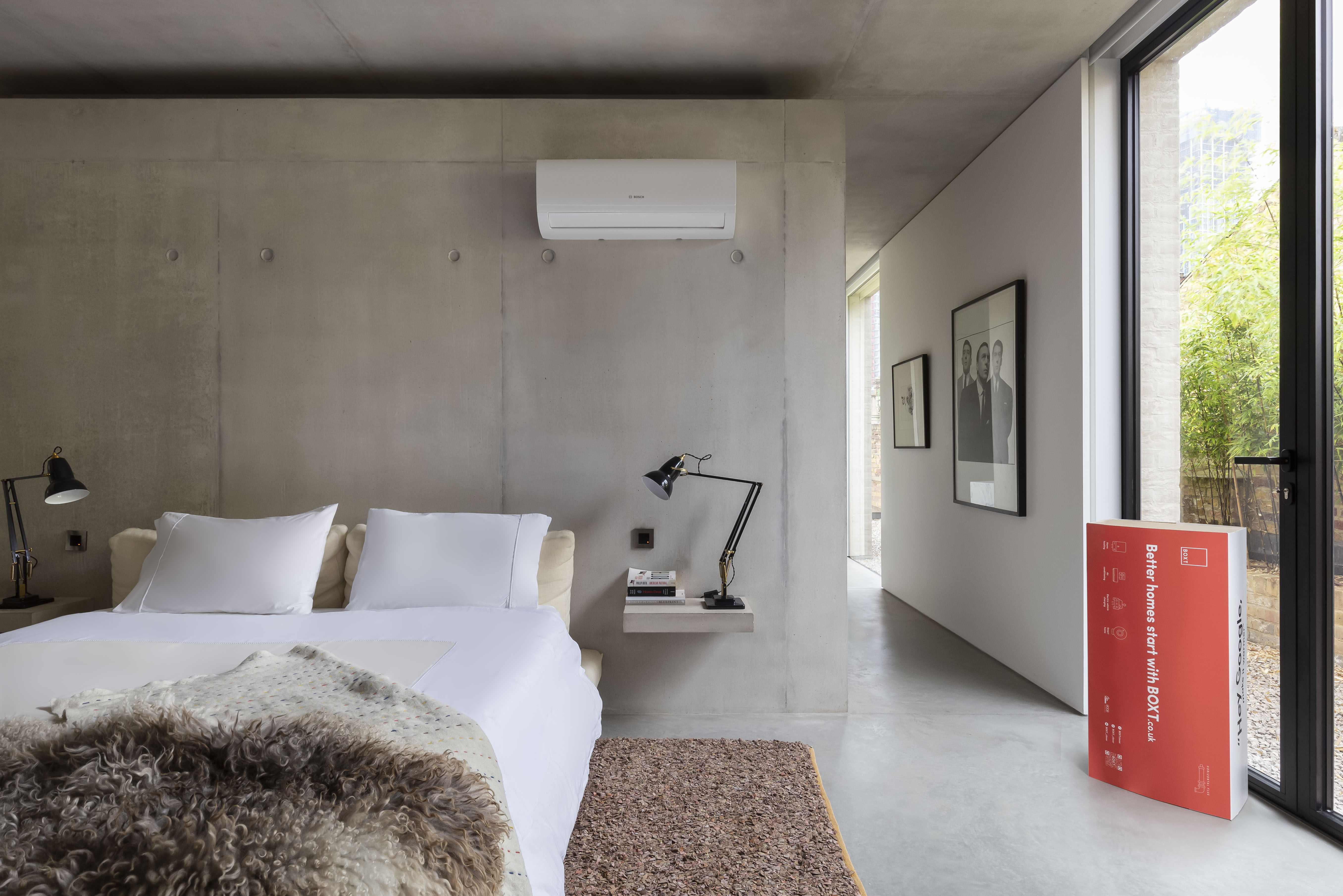 AC not working? Here are 8 things to check ASAP according to industry experts
AC not working? Here are 8 things to check ASAP according to industry expertsYour AC may not be working because the filter is clogged or you've got a tripped circuit breaker. Whatever the issue, getting to the root of the problem will lead to quicker solutions
By Camille Dubuis-Welch Published
-
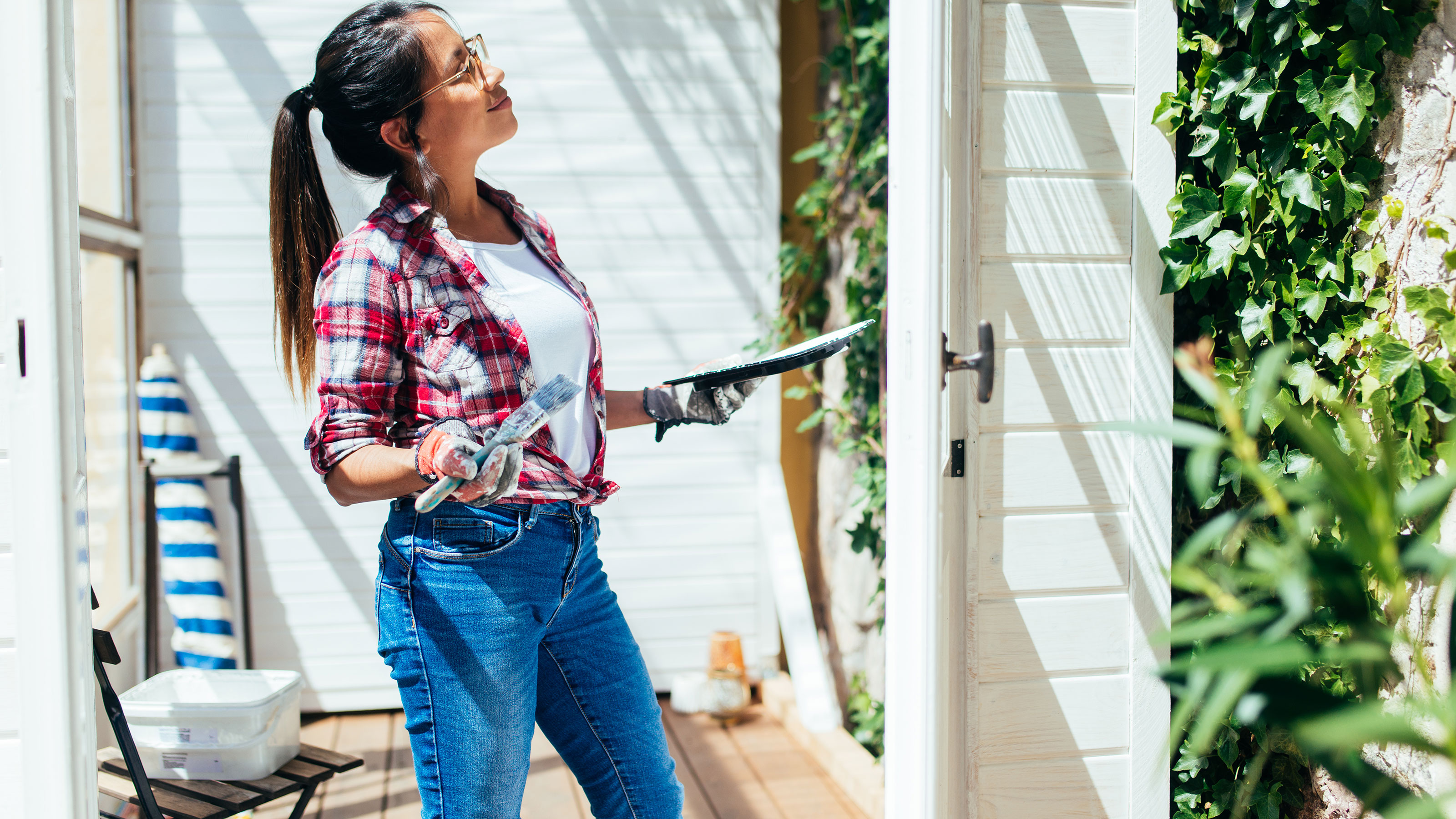 3 DIYs you should NOT do in a heatwave
3 DIYs you should NOT do in a heatwaveYou shouldn't clean windows on a hot day, you just shouldn't
By Camille Dubuis-Welch Last updated
-
 HGTV home renovator shares the most essential home repair you can do
HGTV home renovator shares the most essential home repair you can doHGTV's hottest renovator Carmine Sabatella debunks why this basic home maintenance job should not be forgotten
By Camille Dubuis-Welch Last updated
-
 15 telltale signs you're dealing with a cowboy builder and how to avoid them
15 telltale signs you're dealing with a cowboy builder and how to avoid themA cowboy builder is easy to spot, when you know the telltale signs. Here's how to avoid one so you don't end up out of pocket with a poor or even unfinished home reno job
By Lucy Searle Last updated